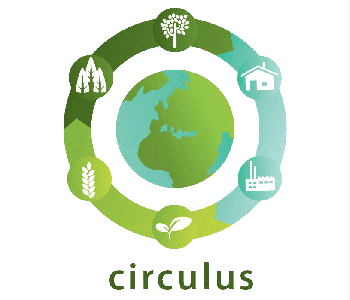


Hosted by the Chair of Societal Transition and Circular Economy, University of Freiburg
Determining the implications of circular economy initiatives on the environment and human wellbeing is essential for successful policy development and monitoring. While technical and business aspects of circular economy initiatives receive growing attention, perspectives on power struggles, socioecological justice and trade-offs in implementation are underdeveloped.
This conference calls for contributions from all disciplines that critically explore prospects, potentials, and limitations of circular economy initiatives for social justice and environmental sustainability.
Strategies and business models proposed under the label of a circular economy are numberless. Many of them are proposed with the aim to ‘disrupt’ existing markets and business practice and create an entirely new economic system. What is disrupted, how, by whom, and with what consequences is often under-theorized and under-researched. Similarly, the contribution of individual strategies and business models to ecological conservation and social justice as well as their fit to specific political, economic or cultural contexts is often uncertain. To achieve the circular economy’s mission of keeping us within planetary boundaries, we need a substantial knowledge base for gauging different strategies’ and business models’ ‘disruptive’ potential with respect to social and ecological goals
This conference aims to open the current circular economy debates more towards critical engagement with the socio-political realities that circular economy efforts face and the multi-faceted effects of implementation. Ultimately, the conference seeks to provide policy and practice with the critical insights needed to achieve socio-ecologically sustainable outcomes.
CONFERENCE TOPICS
– Power, Politics & Policy Design
– Law and Regulatory Governance
– Social Justice & Good Labour Practices
– Circular Cities & Urban Planning
– Concepts & Monitoring Tools
– Towards a Circular Bioeconomy
– Trade & Global Supply Chains
– Business Models, Innovation, Design
KEYNOTE SPEAKERS
Prof. Julia Leventon, Sustainability Science, Leuphana University Lüneburg
Prof. Damien Giurco, Resource Futures, University of Technology Sydney
Prof. Stefanie Hellweg, Ecological Systems Design, ETH Zürich
CALL FOR ABSTRACTS
We invite novel contributions exploring a wide range of questions, including (but not limited to):
Power, Politics & Policy Design
– What role do power and politics play in the conceptualization and realization of a circular economy?
– What policies and initiatives incentivize a sustainable circular economy?
– What are the environmental, economic and social effects of current circular economy policies and programs?
– How can science contribute to policymaking for a sustainable circular economy?
– Case studies: local, national, international policy making & implementation
– (How) Do policies and laws promote or undermine transformation into a socially and ecologically sustainable circular economy?
– Are there trade-offs between existing laws and regulatory frameworks that undermine social justice and environmental sustainability and how can we address them?
– How to establish rights on waste or other secondary resources?
– Do we need harmonized standardization for a circular economy?
Social Justice & Good Labour Practices
– How can the circular economy increase social justice and good labour practices along supply chains?
– Does society benefit from a global circular economy?
– What is the role of power in a circular economy?
– What kind of social aspects and labour practices are most prominent in the literature?
– How do cities conceptualize and implement the circular economy?
– What are the barriers and enablers towards urban circular economy?
– What is the role of urban planning?
– How can the urban circular economy increase social wellbeing?
– What examples of successful initiatives are available?
– How can cities monitor their progress towards a sustainable circular economy?
– What are the effects of circular strategies on urban metabolism?
– Case studies: mobility, waste management, urban farming, construction, energy, water, food waste…
Concepts & Monitoring Tools for a Circular Economy
– How can we conceptualize a socially just and environmentally sustainable circular economy?
– How can we monitor ecological and social sustainability?
– How do we manage complexity?
– How does the circular economy contribute to the SDGs?
– How do we achieve transdisciplinary research for a circular economy?
Towards a Circular Bioeconomy
– How do policy and practice conceptualize a circular bioeconomy?
– What are the key drivers and barriers in a transition to a circular bioeconomy?
– How do actors in the bio-based sector envision their role in the circular economy?
– What are the environmental impacts and benefits of fostering circular bio-based industries?
– Case studies: bioplastics, forestry, agriculture, food waste management, biotechnology…
Trade & Global Supply Chains
– What is the role of transnational supply chains in realizing a circular economy?
– What are the challenges of globalization?
– What role do international relations and the global trade regime play?
– What does global resource circulation look like?
– What are the global impacts and benefits of resource circulation?
– What are critical products and materials in a global circular economy?
– What is the role of North-South relationships in circular economy management?
Business Models, Innovation & Design
– What are the main challenges in circular product design?
– What are the environmental tradeoffs of circular design?
– What are the main areas of product innovation in practice?
– How can we rethink business models to fit the circular economy?
– What are successful experiences in the field of industrial innovation for the environment and social wellbeing (e.g., inclusion, sharing economy…)?
– How does policy regulate and promote circular innovations & business models in industries?
SUBMISSION PROCESS
1. Oral presentations
Authors should submit an abstract (max. 300 words) related to one (or a set) of the questions and topics described above. Abstracts should include the main rationale of the study, methods, expected results and contribution to one or several of the conference topics. Oral presentations will have 15-minute time slots.
2. Session proposals
Sessions of 90 minutes provide authors the option to organize a panel comprising three to four related presentations. A session proposal should include an abstract summarizing the overall topic (max. 500 words), as well as individual abstracts for each presentation included in the panel. Abstracts should include the main rationale of the session, expected outcomes and contribution to one or several of the conference topics. Innovative session formats are particularly welcome, including discussion sessions, interactive dialogues, and workshops.
Please send an abstract including the following information:
– Author name, e-mail and affiliation
– Relevant conference topic(s)
Authors should submit their abstracts in a single Word file to Dr. Anna Petit Boix (anna.petit.boix@transition.uni-freiburg.de) by January 15, 2020. The Organizing Committee will review all submissions and inform authors by February 29, 2020 about the acceptance of their abstracts.
IMPORTANT DATES
– Call for abstracts: November 2019
– Abstract submission deadline: January 15, 2020
– Acceptance notification: February 29, 2020
– Registration period: March 15, 2020 – April 20, 2020 | Registration fee: 50€
– Conference dates: September 21-22, 2020
https://www.circulus-project.de/icec-2020/
Date:
21.-22.09.2020